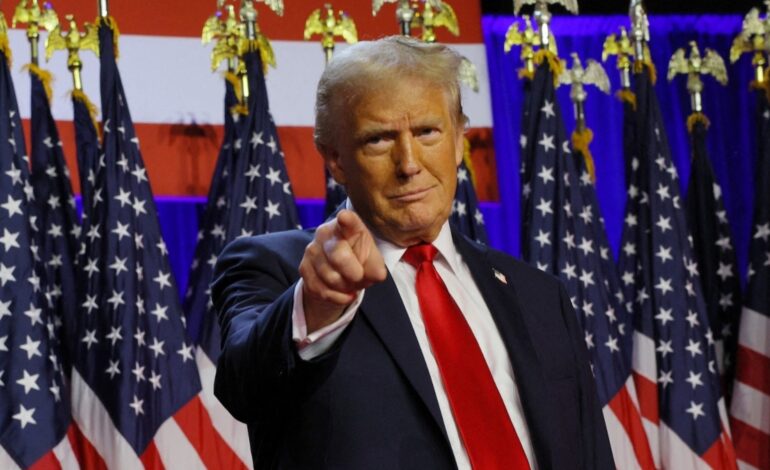
Trump 2.0: A world reimagined or a world on edge?
Dr. Avi Verma
As the world braces for a potential second term of Donald Trump, the implications for America’s domestic and foreign policies loom large. Trump 2.0 promises a presidency more organized and deliberate than its predecessor, but also potentially more polarizing. With lessons learned from his first term and a coterie of loyalists poised to fill key roles, Trump appears ready to wield his newfound mandate with precision and confidence.
Foreign affairs and geopolitical shifts
Trump’s “America First” doctrine could again lead to reduced international cooperation, with reverberations in volatile regions. In the Middle East, his strong ties to Israel and hardline stance against Iran may escalate existing tensions. His withdrawal from the Iran nuclear deal and sanctions during his first term left a lasting impact, and a second term could see the U.S. further entrenched in Middle Eastern conflicts. While Trump claims he can broker peace, critics argue his policies often exacerbate volatility.
On Ukraine and Russia, Trump’s promise to end the war within 24 hours is as ambitious as it is concerning. With a history of amicable ties to Vladimir Putin, there’s speculation about the potential concessions he might offer, possibly sidelining Ukrainian interests. This could reshape not only the conflict but the balance of power in Europe.
Trump’s approach to China remains a critical factor. From imposing tariffs to a confrontational trade policy, his rhetoric underscores a priority on U.S. economic dominance. However, his admiration for President Xi Jinping adds a layer of unpredictability. Would his policies remain assertive, or would personal diplomacy soften his stance?
Domestic policies and global ramifications
Domestically, Trump’s proposed mass deportations and federal government overhauls signal a return to divisive policies. His push to dismantle the Department of Education and shift power to states could reshape American society but risks alienating key segments of the electorate.
On immigration, a second Trump term could harden the U.S. stance, likely affecting global migration patterns and America’s relationships with neighboring nations. Such moves could redefine America’s role as a destination for opportunity and refuge.
A fractured world order
Trump’s disdain for multilateral organizations like NATO and the United Nations may accelerate a trend of weakening global alliances. European allies, already apprehensive, fear a shift toward economic and security isolationism. This could lead to a fragmented world order, with Trump potentially prioritizing bilateral deals over collaborative solutions to global crises.
Ongoing conflicts and future stability
In a world fraught with turmoil—from Israel-Palestine to Ukraine and Iran—a Trump 2.0 presidency may bring more unpredictability than resolution. While he touts his deal-making prowess, the risks of exacerbated tensions and further polarization are real. As nations grapple with these uncertainties, the global community must brace for an America poised to chart its course with renewed resolve but diminished collaboration.
The stakes of this election stretch beyond U.S. borders. Trump’s next chapter could redefine not only the nation but the very fabric of international relations. For better or worse, Trump 2.0 will leave an indelible mark on a world already at a crossroads.